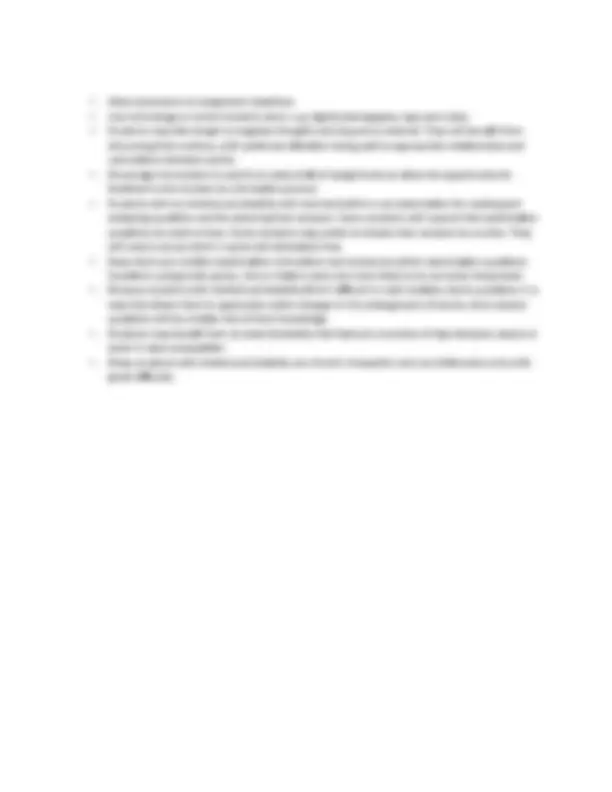



Study with the several resources on Docsity

Earn points by helping other students or get them with a premium plan


Prepare for your exams
Study with the several resources on Docsity

Earn points to download
Earn points by helping other students or get them with a premium plan
Community
Ask the community for help and clear up your study doubts
Discover the best universities in your country according to Docsity users
Free resources
Download our free guides on studying techniques, anxiety management strategies, and thesis advice from Docsity tutors
What is LEARNERS WITH INTELLECTUAL DISABILITY? What is the Impact of intellectual disability, Assessment strategies and Teaching strategies we can use to them? Let's find out!
Typology: Lecture notes
1 / 3

This page cannot be seen from the preview
Don't miss anything!


The term ‘intellectual disability’ refers to a group of conditions caused by various genetic disorders and infections. Intellectual disability is usually identified during childhood, and has an ongoing impact on an individual’s development. Intellectual disability can be defined as a significantly reduced ability to understand new or complex information, learn new skills and to cope independently including social functioning. As with all disability groups, there are many types of intellectual disability with varying degrees of severity. These include considerable differences in the nature and extent of the intellectual impairments and functional limitations, the causes of the disability, the personal background and social environment of the individual. Some people have genetic disorders that impact severely on their intellectual, social and other functional abilities. Others with mild intellectual impairment may develop adequate living skills and are able to lead relatively independent adult lives. Approximately 75 per cent of people with intellectual disability are only mildly affected, With 25 per cent moderately, severely or profoundly affected. Impact of intellectual disability The characteristics and impact of a person’s intellectual disability will vary depending on the cause. There are a number of common characteristics that may have a significant impact on an individual’s learning, including:
Assessment strategies Students with intellectual disability may need particular adjustments to assessment tasks. Once you have a clear picture of how the disability impacts on learning, you can consider alternative assessment strategies. In considering alternative forms of assessment, equal opportunity is not a guaranteed outcome, it is the objective. You are not expected to lower standards to accommodate students with disability but rather are required to give them a reasonable opportunity to demonstrate what they have learned: